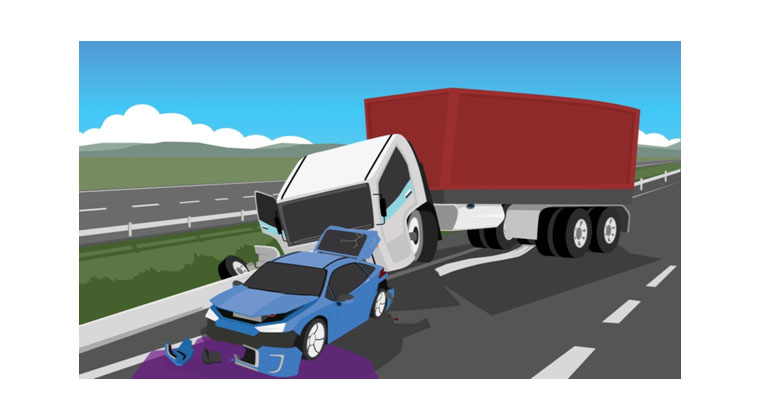
Before the end of January 2023, three accidents involving articulated vehicles had occurred in Lagos, Ogun State (Lagos-Ibadan Expressway), and Ondo State resulting in the death of about 30 people and many more injured. In February, another tragedy occurred in Kwara, Ilorin involving a trailer truck and a stationary vehicle resulting in the demise of about 8 people.
While these incidents have occurred year in and year out, the gruesome impact will never be one to get used to or grow tough skin towards dealing with. No one can shrug off the grim demise of a family’s breadwinner, a young child, or the loss of highly valued properties; instead, all hands must be on deck to limit this sad occurrence.
Between August 2020 and August 2021, the Federal Road Safety Corps (FRSC) recorded 1,070 crashes involving articulated vehicles, comprising 378 tankers and 792 trailers across Nigeria. The two-year report shows that the carnage claimed 261 lives while injuring 223 people. This is alarming and heart-wrenching.
Findings by a credible news platform, Daily Trust, “also showed that 111 vehicles got burnt in various explosions, which razed 55 shops and 84 houses across some states in Nigeria. In addition to the deaths and pain of grieving families, these destructive events also negatively impacted Nigeria’s economy, which lost N39 billion to trailer accidents in 2018 alone, according to the FRSC.
With these frightening statistics, it is right to say that trailer accidents carnage has gone too far, and it is high time stringent measures are taken to curb these morbid trends. This article highlights three significant and actionable steps that every road user and law enforcement agency should take.
We must prioritise stricter traffic law enforcement
This cannot be overemphasized. Ensuring a stricter law enforcement process backed by stringent consequence management procedures is critical to curbing this dire situation. It is sad to note that Africa has the world’s highest road accident death rates, with Nigeria topping the list of Africa’s most traffic accident-related fatalities, according to the World Health Organisation (WHO).
According to the National Bureau of Statistics (NBS), 1,834 people died out of 3,345 road accidents that occurred in the country between January and March 2022. The factors responsible for these incidents include, but are not limited to speed violations, traffic light violations, wrongful overtaking, brake failures, dangerous driving, and vehicles without roadworthiness permits.
Seeing rickety trailers and trucks ply the bridge or busy road network is upsetting, as one can see an accident waiting to happen. This is where strict law enforcement should come in. Every vehicle, especially an articulated vehicle, should have the required and up-to-date permit to ply these roads; no driver should be found driving under the influence and endangering the lives of fellow commuters.
Therefore, law enforcement agencies should apply stringent measures and check these articulated vehicles regularly.
Self-Preservation is a survival skill
The next step is to ensure that self-preservation becomes one’s road survival skill. Every road user must rely on their natural or instinctive tendency towards safety and make decisions to preserve one’s existence.
It is essential that when one encounters these vehicles prone to accidents, do not stop beside them or try to overtake them, but rather, as much as possible, avoids them. Maintaining a safe driving distance of 60 metres between long vehicles and your car is also advisable. This provides enough thinking and navigation room in the face of imminent danger. We recommend defensive driving training to perfect this critical survival dexterity.
No amount of precaution is enough
Irrespective of how thorough and careful one is, sometimes no precaution is enough. No one drives or steps out expecting accidents, but the reality is that life happens even to the most careful and law-abiding citizens.
Other factors, like driving carelessly while high on drugs or alcohol, are beyond other drivers’ control. Innocent road users could easily fall victim to such unfortunate outcomes. The question should be: What else can be done after adhering strictly to traffic laws, ensuring the required car permits are up-to-date, and keeping constant car maintenance are in check? What other mitigation measures should one put in place to ensure that should the unexpected happen, there would be recompense? This is where insurance comes in.
In conclusion, we send our deepest commiseration to the families, loved ones of the bereaved ones who were affected one way or another; we pray for comfort and strength as you walk these turbulent times.
Meanwhile, should you be interested in having a risk mitigation plan in this regard, please contact our risk management experts by visiting www.leadway.com. You can also call the Leadway Assurance Financial Management Experts on 01-2800-700 or email [email protected] for professional advice on the next steps.














